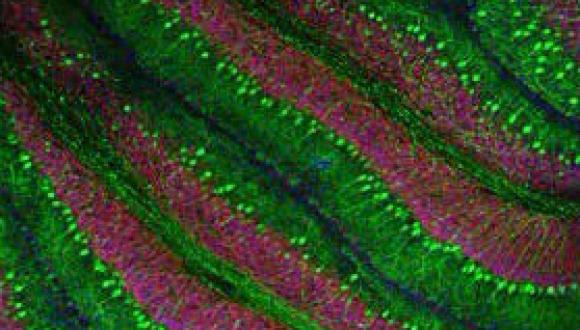The ATM-Mediated DNA Damage Response
Prof. Yosef Shiloh, Ph.D.
Department of Human Molecular Genetics and Biochemistry
Prof. Yosef Shiloh, Ph.D.
Department of Human Molecular Genetics and Biochemistry
Our laboratory investigates the cellular DNA damage response. This research stems from our interest in the human genetic disorder ataxia-telangiectasia (A-T), in which a central axis of the DNA damage response is missing.
Genetic defects in the DNA damage response lead to genomic instability syndromes, which usually include tissue degeneration, cancer predisposition, and sensitivity to specific DNA damaging agents. A prototype genomic instability syndrome is A-T. The disease is characterized by neuronal degeneration, immunodeficiency, chromosomal instability, sensitivity to ionizing radiation, and cancer predisposition.
Our lab has been investigating A-T since its establishment in 1985. In 1995, after 8 years of intensive work, we identified the gene that is defective (mutated) in A-T patients and called it ATM (A-T, Mutated). We went on to study the activity of its product, the ATM protein, which turned out to be an enzyme with an activity alled “protein kinase." Our current research is aimed at a broader understanding of the ATM-mediated DNA damage response. Particular attention is paid to the molecular and physiological basis of A-T, which may eventually lead to new treatment modalities for the disease. We investigate this system with cell biology methods, gene targeting in mice, and systems biology strategies including high-throughput screens, advanced proteomics and bioinformatics. A study is underway aimed at understanding the DNA damage response in the part of the brain called the cerebellum, which is badly damaged in A-T patients. Another project is searching for a drug treatment for A-T patients based on our recent understanding of the disease.


